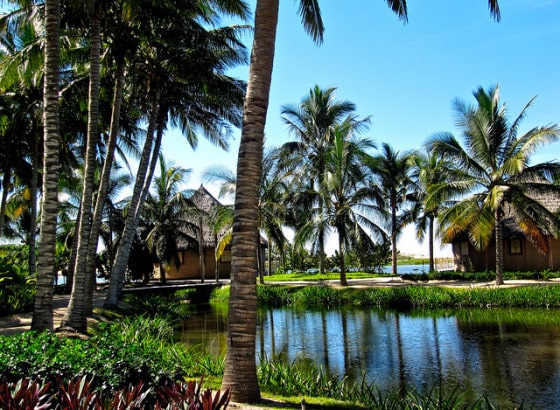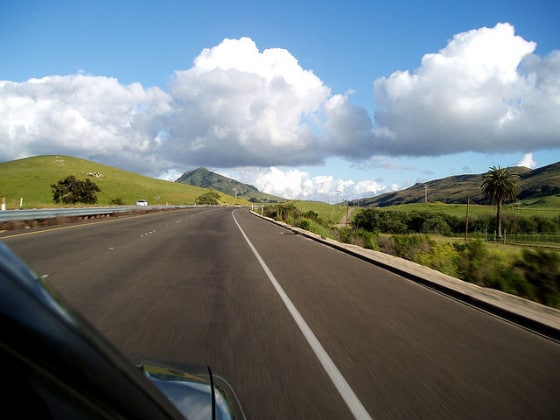
Tips on Enjoying a Green and Environmentally-Friendly Vacation
Whenever the term ‘eco-tourism’ or ‘green travel’ is mentioned many people get a picture in their minds of people camping in the middle of dense rain forests of the Amazon, or rafting down the cascades of Himalayan Rivers sacrificing every possible comfort to minimize their impact on the environment. However, you really don’t have to go to extreme lengths to enjoy a green vacation. All that’s needed is a conscious effort not to litter, waste precious natural resources, damage the environment or harm the local communities.
With tourism showing an exponential surge, even small, individual contributions can have a massive accumulated effect. Here are a few handy tips that everybody can practice:
Planning Green
Make sure to pack light as you will not only have less to manage, but it will make your travel more eco-friendly due to less weight needing to be carried by the plane, train or car. A reusable water bottle that you can fill up at the hotel or restaurants saves you from buying expensive packaged water and worrying about disposing the plastic.
Remove extra packaging material from items you needed to buy for the vacation and recycle these before leaving home. Turn off, or preferably unplug, all electrical appliances instead of having them on sleep and leaching power. Turn down the heating and switch off the water heater too. Inform the newspaper distributor to suspend delivery for the period you will be away.
Traveling Green
Air travel, by and large, creates the maximum impact on the environment due to the amount of fossil fuel a plane burns, causing it to emit massive amounts of carbon dioxide. While no viable option to using a plane for long distance travel may exist, you can try and book yourself onto a non-stop economy flight that carries more passengers, preferably on a new-generation plane that’s more energy-efficient. If the trip is shorter, then the best way to travel is on a train or the bus, resisting the urge to take the car, even if it is a hybrid.
A couple traveling by bus can cut carbon dioxide emissions in half compared to a hybrid and by up to three-quarters compared to planes. After arriving at your destination, try to get around using local public transport, or even consider hiking or cycling if it seems practical. If you do need to hire a car, make sure it is the smallest that will suffice, and if possible opt for a hybrid.
Staying Green
When booking your vacation accommodations consult a number of Internet resources that promote environmentally-friendly hotels, lodges, and campsites sharing your regard for the environment, and offering a great value for the cost. These places will usually have details on how they practice recycling of plastic or glass, whether they allow guests to have their towels and linen changed less frequently, whether they have low-energy lighting, showers and toilets that use less water, practice rainwater harvesting or have infrastructure to generate power using solar panels or wind power.
While traveling, consciously use less water when showering and keep taps shut when brushing teeth. When staying in a Tadoba resort or any other jungle lodge, make a point to switch off appliances, television, lights, etc. before leaving the room. If you are using the toiletries provided by the hotel, do not waste these. Use the provided toiletries fully or take them with you for use during the rest of your trip.
Sightseeing Green
If you are booking with a tour operator make sure that the operator believes and adheres to ecologically-friendly practices. A small group is better than a large one; not only will you generally make better friends, but you tend to cause less environmental havoc in the places you visit. When out, do not litter. Collect all your trash for disposal in designated places or carry it back to your lodgings. Do not approach animals too close, feed them or shoot them with anything but cameras. Campfires should be lit only where permitted and care must be taken to completely extinguish the fire before leaving.
When diving or swimming in fragile marine ecosystems, take caution to not pour harmful chemicals into the water from sunscreens or lotions. Take the utmost care not to damage coral or rock formations or even stir up the sediment. Buy local products instead of imported ones, but take care not to acquire mementos that are fabricated from endangered flora or fauna. Treat the locals with respect and appreciate their culture. Wherever possible volunteer to give back something to the local communities.
Eco-friendly Mexican hotel image by Felicity Rainnie via Flickr Creative Commons license.




Post a comment